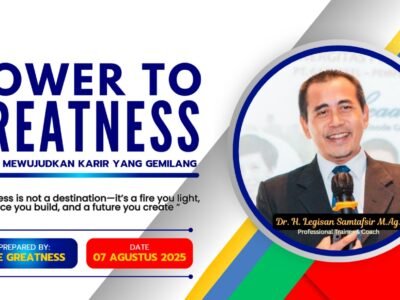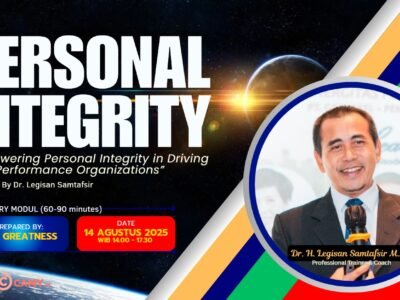
Hajj 2025: A Momentum for National Integrity Reform Amidst a Moral Crisis
The 2025 Hajj season has arrived. A total of 221,000 Indonesian pilgrims began entering embarkation points on May 1, 2025, with departures to the Holy Land starting on May 2. The presence of pilgrims in such a large number is not merely a religious occasion, but also a national momentum with great potential for improving the country’s integrity.
This was conveyed by Dr. Legisan Samtafsir, M.Ag, Founder of the Gerakan Indonesia Mabrur. He emphasized that the Hajj pilgrimage is not only about fulfilling its rituals and requirements, but should serve as a means of personal, social, and national transformation. “Every form of worship in Islam has a targeted outcome. Likewise with Hajj — its outcome should be the emergence of God-conscious individuals who bring real change to society,” he explained.
Dr. Legisan connected this year’s pilgrimage with Indonesia’s current condition, which is plagued by multiple crises. Referring to Dr. Abdullah Hehamahua, former advisor to the Corruption Eradication Commission (KPK), Indonesia is currently facing five major crises: corruption, drug abuse, family breakdown, law enforcement, and nationalism. “The root of all these crises is none other than an integrity crisis,” he stressed.
Data supports this assertion. The IPSOS Global Trustworthiness Index 2023 reveals that public trust in the police is only 27%, in government employees 32%, and in politicians just 24%. Meanwhile, KPK recorded 2,730 corruption cases from 2020 to 2024. Divorce rates rose sharply from 15–20% (2010–2015) to 72% (2015–2020). The prevalence of drug abuse stands at 1.7%, equivalent to 3.3 million Indonesians aged 15–64.
“The question is, can this massive Hajj pilgrimage serve as a pathway to improving national integrity?” said Dr. Legisan. He emphasized the need for serious attention from the government, particularly President Prabowo, so that Hajj is not viewed merely as a personal obligation of citizens, but also as part of a strategy to build national character.
“God’s promise is clear: if a people in a land believe and fear Him, then blessings from the heavens and the earth will surely be bestowed upon them,” he said. Therefore, the Hajj must be optimized not only as a ritual, but as a transformative process that changes values and behaviors among pilgrims — with wide-reaching societal impacts.
He also reminded all parties, including Hajj officers, travel organizers, and Hajj guidance groups (KBIH), not to focus solely on the technicalities, but also to provide deep understanding and meaningful reflection on the essence of Hajj.
“Let us ensure that the souvenirs brought back from Hajj this year are not just dates, zamzam water, prayer rugs, or prayer beads — but more importantly, integrity, commitment to change, and a spirit to build the nation toward the vision of Golden Indonesia 2045,” he concluded.


